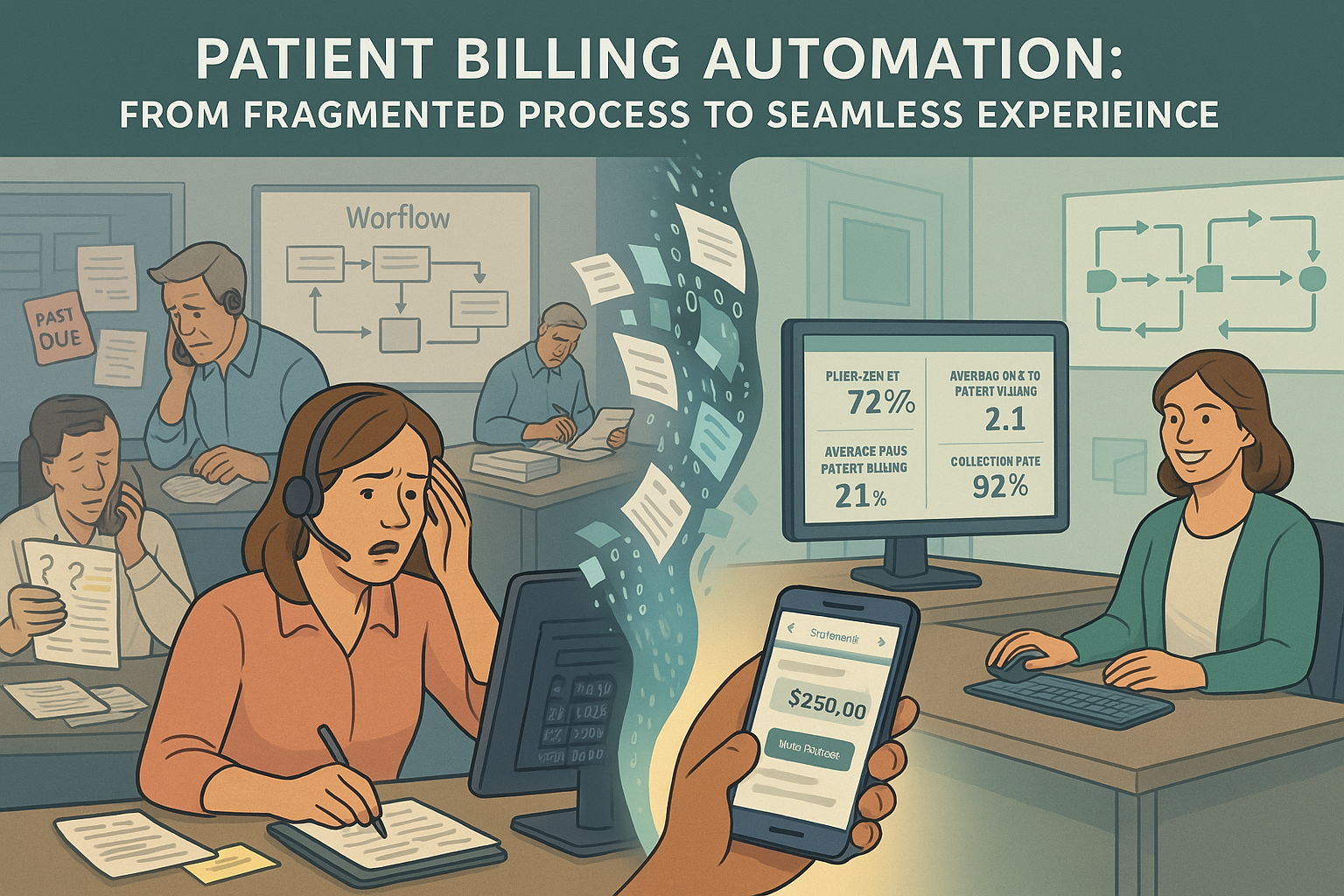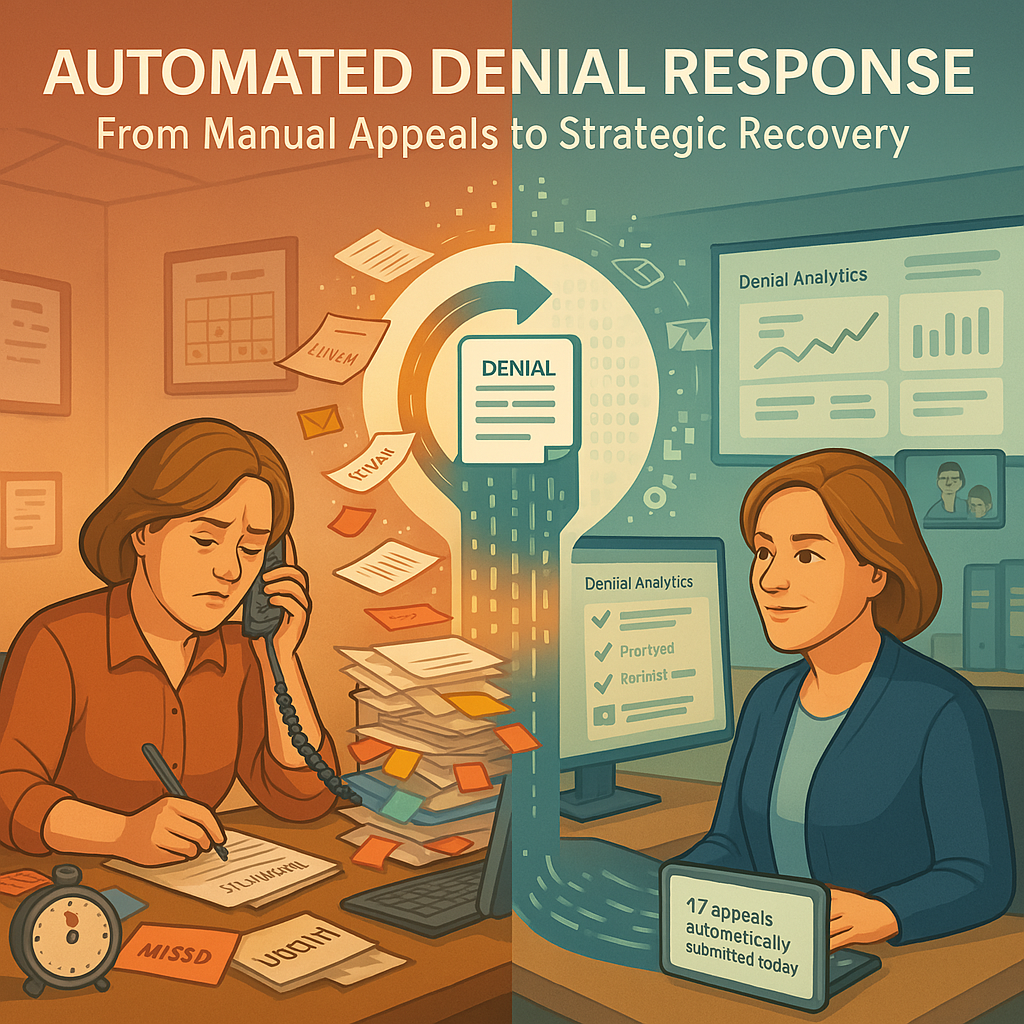RCM Oversight Tactics: Ensuring Effective Revenue Cycle Management
Revenue Cycle Management (RCM) is a critical process for healthcare organizations, encompassing the identification, management, and collection of patient service revenues. Effective oversight of RCM is essential to ensure financial stability, regulatory compliance, and operational efficiency. This article explores various tactics for overseeing RCM, providing insights into best practices and strategies to optimize this vital function.
Understanding RCM Oversight
RCM oversight involves monitoring and managing the end-to-end process of patient revenue generation, from initial patient engagement through the final payment of outstanding balances. It includes pre-registration, registration, charge capture, claim submission, payment posting, and denial management. Oversight ensures that each step is performed accurately and efficiently, reducing the risk of revenue leakage and enhancing financial performance.
Key Tactics for Effective RCM Oversight
-
Enhance Communication and Collaboration
Effective communication and collaboration among different departments involved in RCM are vital. Ensuring that billing, coding, and clinical staff work together seamlessly can prevent bottlenecks and improve process efficiency. Regular meetings and cross-departmental training sessions can foster a collaborative environment and enhance overall RCM performance.
-
Focus on Denial Management
Denial management is a critical aspect of RCM oversight. Implementing a robust denial management process involves identifying the root causes of claim denials, developing strategies to address these issues, and tracking the resolution of denied claims. By reducing the rate of claim denials, healthcare organizations can significantly improve their revenue cycle efficiency.
-
Strengthening Accountability in RCM Outsourcing
Revenue cycle management (RCM) is crucial for healthcare providers, yet it presents significant challenges, particularly when certain functions are outsourced. Ensuring accountability in these operations is key for maintaining the integrity and effectiveness of the revenue cycle.
-
The Critical Role of Detailed Reporting
For many practices, the reliance on standard reports from outsourced RCM services doesn’t meet specific needs. These generic reports often fail to provide actionable insights, which can hinder a provider’s ability to make informed decisions tailored to their operational needs. Developing a more collaborative approach to reporting could improve the relevance of the data provided, ensuring both the healthcare provider and the RCM service understand and act on the insights in a manner that fosters improvement and accountability.
-
Leverage Advanced Technology
Utilizing advanced technology solutions can streamline RCM processes and enhance oversight capabilities. Automated systems for billing, coding, and claim submission reduce human error and increase efficiency. Additionally, data analytics tools can provide real-time insights into RCM performance, enabling proactive decision-making and timely intervention.
-
Conduct Regular Audits
Regular audits are essential to ensure compliance with regulatory requirements and internal policies. Audits can identify discrepancies, uncover inefficiencies, and highlight areas for improvement. Both internal and external audits should be conducted periodically to maintain transparency and accountability.
-
The Importance of Data Integrity in RCM
Data integrity is a major concern within RCM operations. Outsourced services sometimes manage data through separate spreadsheets, leading to discrepancies and potential errors. To mitigate this, revenue cycle directors should delve into transaction logs and adjustments more thoroughly to ensure all data accurately reflects the financial and operational status of the provider.
-
Overcoming Staffing Challenges with Creative Solutions
Leverage the flexibility of hybrid RCM vendors to address staffing shortages. Consider hiring dedicated staff through the vendor to tackle specific tasks, ensuring critical work gets done without overextending your team.
-
Flexibility and Negotiation in RCM Contracts
While percentage of collections is common, negotiate carve-outs and exclusions to ensure fair compensation for services rendered. Your RCM vendor’s success is tied to yours, so they’re often willing to be flexible to achieve shared goals.
Conclusion: Achieving Financial Health Together
When healthcare practices and their RCM partners communicate openly, trust the data, and work together to find solutions, everyone wins. In the end, this strategy delivers a healthier bottom line, smoother operations, and even higher patient satisfaction scores. By implementing clear performance metrics, leveraging technology, conducting regular audits, and focusing on staff training and denial management, organizations can optimize their revenue cycle processes. Enhancing communication, engaging patients, and considering outsourcing options where appropriate can further strengthen RCM oversight. Ultimately, these tactics help ensure that healthcare organizations maintain financial stability, regulatory compliance, and operational efficiency in an increasingly complex healthcare landscape.










